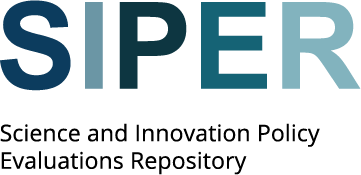About the Project
We are convinced that effective policy-making depends on evidence and learning.
Across the world, there are numerous instruments to promote science and innovation provided by governments, ministries, agencies and international or supranational organisations. However, all these actors want to determine the effects of their policy interventions: How well are they being managed? - What results have been achieved? - How effective or efficient is their implementation? - What impacts have they had?
A vast number of evaluations are conducted to assess the effects of policy instruments in various fields. Together, these constitute a valuable resource for policy learning. However, these evaluations are published in an enormous variety of locations and are not all readily traceable. In addition, only a small proportion of them have been systematically categorised by their major features. This is where SIPER aims to make a difference.
SIPER is a central source of knowledge on science and innovation policy evaluations aiming to:
- provide online access to a unique collection of policy evaluations at a single location;
- enable policy learning by providing an informed analysis of the database contents giving insights into what works (and what does not) for a variety of policy objectives;
- support academics in the development of new research questions, particularly by combining information from various databases using the RISIS core facility (https://rcf.risis2.eu/).
Our primary audience is made up of policy makers concerned with the design, implementation, management, and evaluation of science and innovation policy interventions and instruments, evaluation practitioners, and those engaged in research into science and innovation policy evaluation as well as the broader area of science, technology and innovation (STI) studies.
SIPER is part of the Research Infrastructure for Science and Innovation Policy Studies (RISIS). During the first funding period of RISIS, the database was developed and implemented by the Manchester Institute of Innovation Research (MIoIR), Alliance Manchester Business School at the University of Manchester. With the start of the second funding period (RISIS 2) under the European Union's Horizon 2020 Research and Innovation Programme (grant agreement No. 824091) responsibility for the database, including its maintenance as well as its further development, moved to the Fraunhofer Institute for Systems and Innovation Research ISI.
For further information on the RISIS infrastructure as well as on news and events, please go to https://www.risis2.eu.
